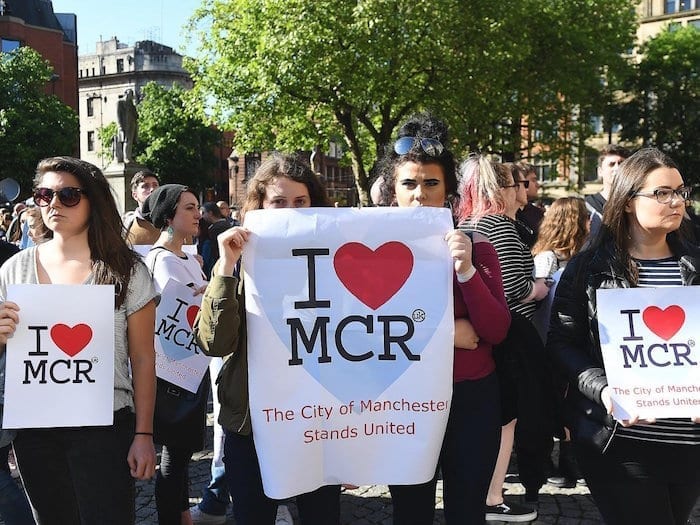Manchester most liveable city in the UK according to major global survey
- Written by Louise Rhind-Tutt
- Last updated 6 years ago
- City of Manchester, Sport

Manchester has been named the most liveable city in the UK according to the Economist Intelligence Unit (EIU) annual global liveability index, published today.
In the survey, Manchester saw the biggest improvement of any European city, rising by 16 places to rank 35th. This puts it ahead of London by 13 places, the widest gap between the two cities since the survey began two decades ago.
The worldwide league table ranks 140 global cities on over 30 qualitative and quantitative factors across five broad categories – stability, healthcare, culture and environment, education, and infrastructure – and assesses which locations around the world provide the best or the worst living conditions.
“An improved security score has meant that Manchester has pulled further ahead in the liveability index, leading London by a record 13 places and 2.2%,” says Roxana Slavcheva, editor of the survey.
“What is more, Manchester also represents a regional trend over the past year, where there have been notable improvements in security in several western European cities which have shown resilience in their recovery from terrorist attacks.”

The survey was criticised last year for demoting Manchester eight places after the Arena attack, but the city has this year been praised for its “resilience” in the subsequent months.
The threat of terrorism and petty crime rates are lower in Manchester than in London, according to the report.
“Paris in France and Manchester in the UK recorded the biggest improvements over the past 12 months, both in overall scores and stability ratings,” says the survey.
“Although they have been subject to high-profile terrorist attacks in recent years, which have shaken stability and led to cumbersome security measures, both cities have shown resilience in the face of adversity.”

According to the survey, nearly half of the cities surveyed have seen their liveability ranking improve over the past year.
For qualitative indicators, a rating is awarded based on the judgment of in-house analysts and in-city contributors. For quantitative indicators, a rating is calculated based on the relative performance of a number of external data points.
Each of the 30 factors in each city is rated as acceptable, tolerable, uncomfortable, undesirable or intolerable. The categories are compiled and weighted to provide an overall rating of 1–100, where 1 is considered intolerable and 100 is considered ideal.
“The liveability ranking considers that any city with a rating of 80 or more will have few, if any, challenges to living standards,” says the survey. “Any city with a score of less than 50 will see most aspects of living severely restricted.”
For the first time in the survey’s history, Austria’s capital Vienna tops the table with an almost perfect overall score of 99.1%. Melbourne, which ranked second in this year’s global rankings, had previously come top for seven years running.
Osaka, Calgary, Sydney, Vancouver, Tokyo, Toronto, Copenhagen and Adelaide make up the top 10, while the three lowest ranking cities are Damascus in Syria, Dhaka in Bangladesh and Lagos in Nigeria.
- This article was last updated 6 years ago.
- It was first published on 14 August 2018 and is subject to be updated from time to time. Please refresh or return to see the latest version.
Did we miss something? Let us know: [email protected]
Want to be the first to receive all the latest news stories, what’s on and events from the heart of Manchester? Sign up here.
Manchester is a successful city, but many people suffer. I Love Manchester helps raise awareness and funds to help improve the lives and prospects of people across Greater Manchester – and we can’t do it without your help. So please support us with what you can so we can continue to spread the love. Thank you in advance!
An email you’ll love. Subscribe to our newsletter to get the latest news stories delivered direct to your inbox.
Got a story worth sharing?
What’s the story? We are all ears when it comes to positive news and inspiring stories. You can send story ideas to [email protected]
While we can’t guarantee to publish everything, we will always consider any enquiry or idea that promotes:
- Independent new openings
- Human interest
- Not-for-profit organisations
- Community Interest Companies (CiCs) and projects
- Charities and charitable initiatives
- Affordability and offers saving people over 20%
For anything else, don’t hesitate to get in touch with us about advertorials (from £350+VAT) and advertising opportunities: [email protected]

A “once-in-a-lifetime regeneration scheme” is coming to Salford – but not everyone is impressed

The group creating a community of care for those living with dementia

Review: Faith Healer at The Kings Arms is ‘a stunningly performed narrative of grief and identity’

Manchester mental health expert shares her top tips to help children through Blue Monday
















